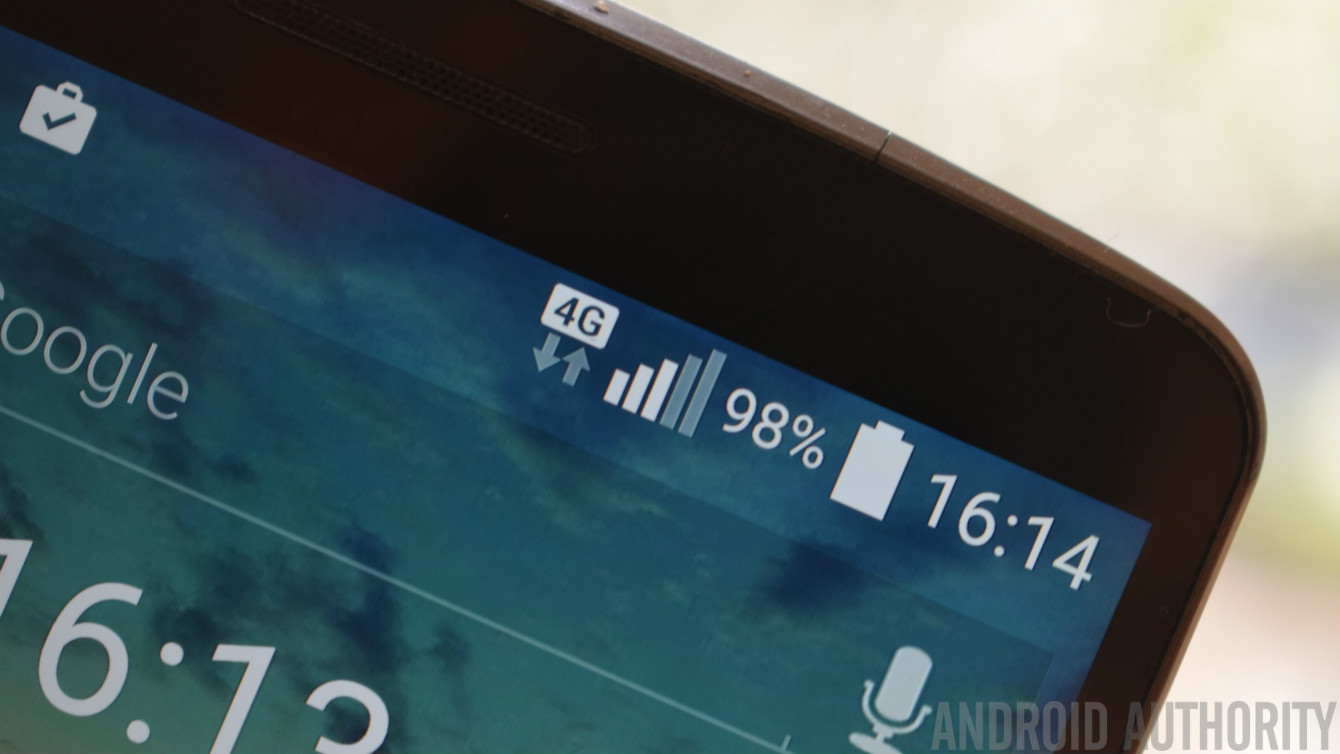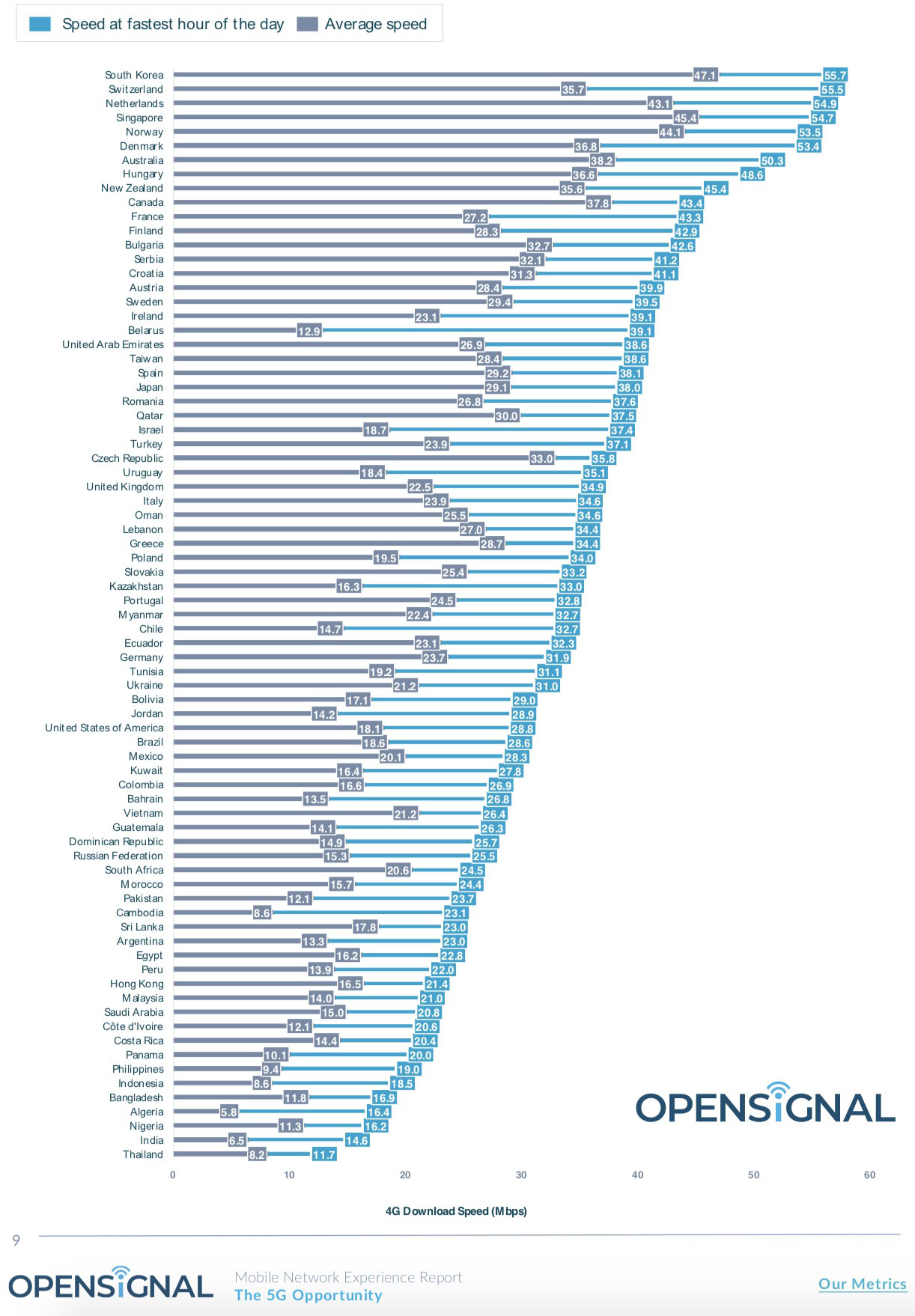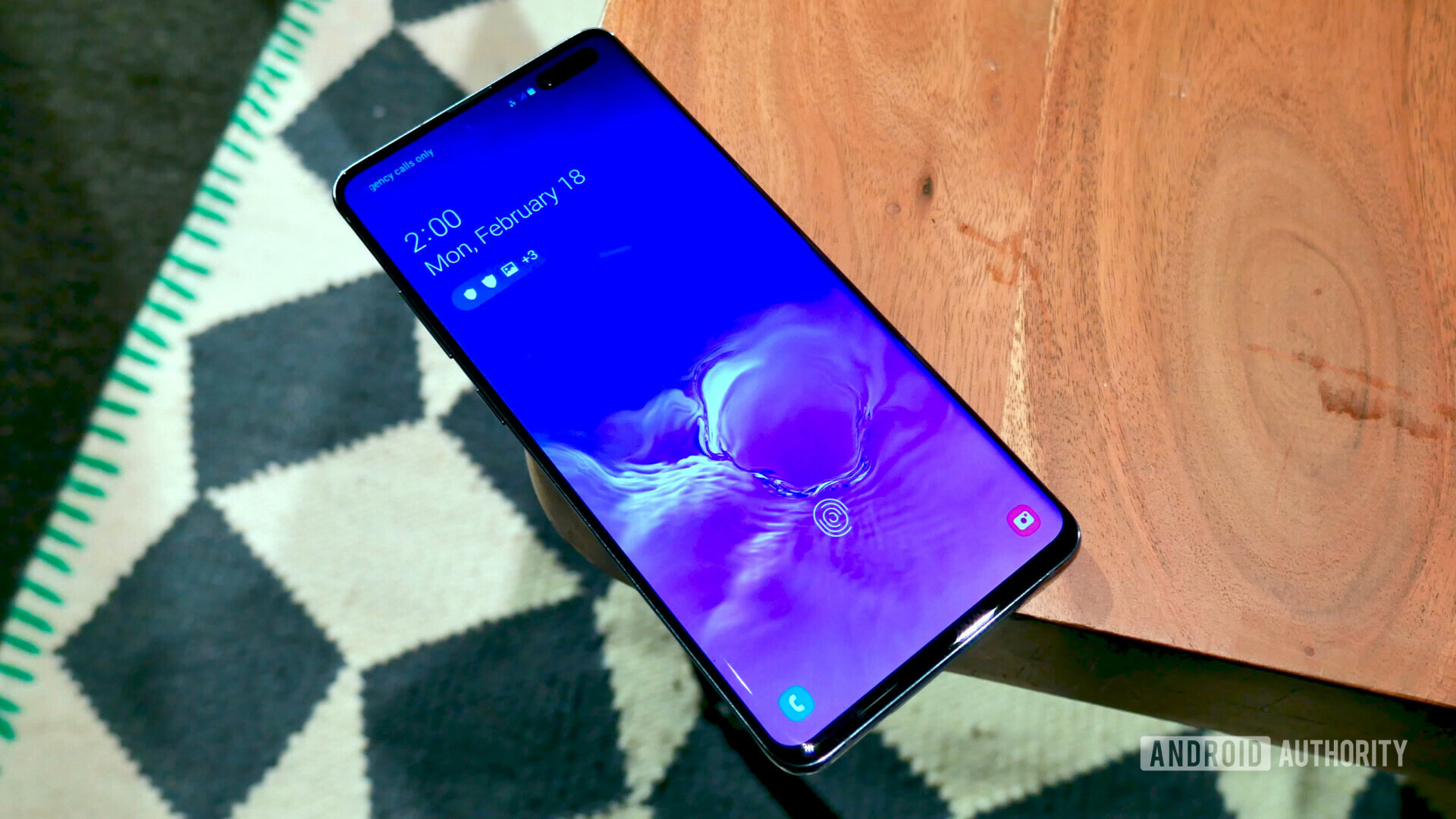Affiliate links on Android Authority may earn us a commission. Learn more.
Study: US behind Myanmar, Jordan, and 44 others in 4G download speeds

The U.S. has been ranked 47th of 77 countries in a study on 4G download speeds. Research company Open Signal (via 9to5mac) published the findings yesterday based on data collected between January 1 to December 31, 2018.
Open Signal looked at more than 585 billion measurements on more than 94 million devices to determine how the nations’ phones performed in (daily) maximum and average 4G speeds.
In the chart below, you’ll see the 77 countries tested ranked highest to lowest download speed at the fastest hour of the day (typically around 3AM).

South Korea took the top spot on the list with a top download speed of 55.7 megabits per second (Mbps) — around double the U.S.’s speed at the fastest hour of the day. South Korea was followed by Switzerland (55.5Mbps), Netherlands (54.9Mbps), Singapore (54.7Mbps), and Norway (53.5Mbps).
The U.S. had a peak speed of 28.8Mbps with an 18.1Mpbs average. It came 44th in the fastest hour of the day ranking, while its average was beaten by many countries too, such as Costa Rica and Saudi Arabia.
There were significant discrepancies between average and best for most countries, pointing to 4G congestion issues, though Czech Republic had less than 3 Mbps between its highest and its average download times.
Open Signal said the congestion witnessed on the 4G network underscored the need for 5G to relieve the pressure.
Why is the U.S. in 47th place?
The high number of smartphone users in the U.S. generally may have been one reason for 4G’s comparatively low top speed and average. It should also be noted that these findings are all based on the research and methodology of one company and may not be in line with the findings of others.
But there are other considerations that don’t bode well for the U.S.

In terms of Gross Domestic Product (GDP), one of the most frequently cited statistics for understanding economic power, the U.S. is widely considered to hold the top spot globally. Further, the U.S. has a significant focus on consumer electronics, particularly smartphones; Silicon Valley is home to both of the world’s most influential smartphone platform makers Apple and Google.
With this in mind, perhaps it’s surprising that its 4G performance is so far down the list.

U.S. carriers and smartphone manufacturers have already begun promoting 5G connectivity products: Samsung just unveiled a Galaxy S10 smartphone with 5G capabilities yesterday, while AT&T recently added a 5G E badge to certain smartphones (though it has attracted lawsuits because it isn’t actually 5G).
While 5G could be 4G’s saving grace, this data might give some consumers pause for the upgrade: if the U.S. is this far behind less developed nations on years-old 4G, perhaps its 5G efforts will be similarly underwhelming.
Thank you for being part of our community. Read our Comment Policy before posting.